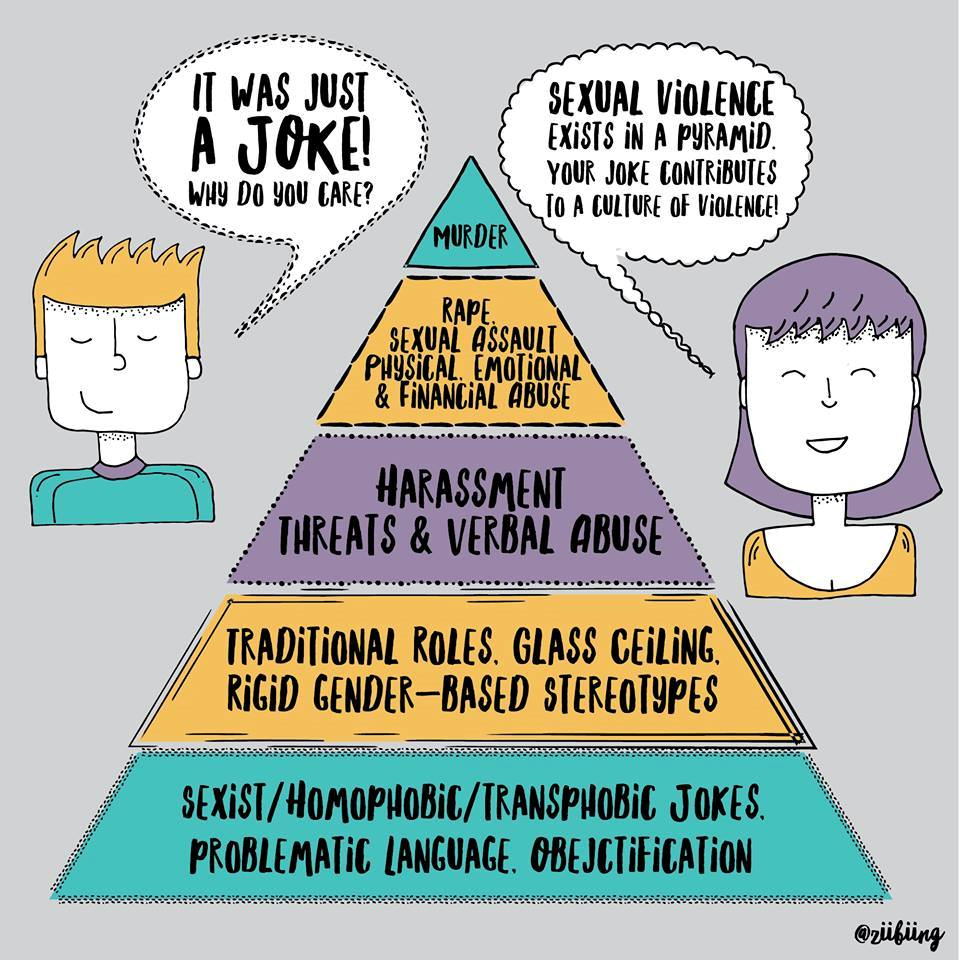All posts
What is Gender-Based Violence?
Domestic and family violence can happen to anyone – men, women, and children – and it is never OK. Regardless of gender, no one deserves to experience any type of abuse from a partner, and everyone has the right to feel safe in their home. But violence against women perpetrated by men is a particularly […]

Domestic and family violence can happen to anyone – men, women, and children – and it is never OK.
Regardless of gender, no one deserves to experience any type of abuse from a partner, and everyone has the right to feel safe in their home.
But violence against women perpetrated by men is a particularly serious and widespread problem in Australia.
Many girls and women in Australia live in fear of physical, sexual and emotional violence in the streets, at school, at work, on social media, and in their homes. Statistics show that because of their gender, females have a higher risk of domestic violence in all its forms – not just in Australia, but all over the world.
The United Nations Declaration on the Elimination of Violence against Women defines ‘violence against women’ as:
“Any act of gender-based violence that results in, or is likely to result in, physical, sexual or psychological harm or suffering to women, including threats of such acts, coercion or arbitrary deprivation of liberty, whether occurring in public or private life.”
We look at the prevalence of violence against women in Australia and what you can do to stand up against gendered-based violence, starting in your social circles.
Violence against Women in Australia
- On average, 1 woman a week is murdered by a current or former partner, compared to 1 man a month.
- 1 in 6 women have experienced physical and/or sexual violence by a current or former partner, compared to 1 in 16 men.
- 1 in 5 women have been sexually assaulted and/or threatened since age 15, compared to 1 in 20 men.
- 72,000 women sought homelessness services due to domestic violence in 2016-17, compared to 9,000 men.
- In 2014–15, on average, almost 8 women were hospitalised each day after being assaulted by their spouse or partner, compared to almost 2 men each day.
- Almost 1 in 4 women have experienced emotional abuse from a current or previous partner since the age of 15, compared to 1 in 6 men.
- In 2016, on average, police recorded 52 sexual assaults each day against women, compared to about 11 against men each day.
- Intimate partner violence is the greatest risk factor for women aged 25-44.
These are some key findings from the Australian Institute of Health and Welfare’s report ‘Family, Domestic and Sexual Violence in Australia, 2018.’ You can view the full report here.
How to Stand Up Against Gendered Violence
Violence against women in Australia is preventable, and it starts with our everyday interactions.
Social problems like sexist attitudes, gendered stereotypes, and objectification can all lead to gendered violence.
Small things like pulling a friend up on a sexist joke or catcall can help. It might be uncomfortable at first, but letting the people around you know that you don’t support those kinds of behaviours can make them stop and think twice about what they’re doing.
This pyramid of gendered violence shows how sexist attitudes can lead to escalating levels of abuse:

Where to Get Support
If you or someone you know is living with domestic and family violence, help is available. You can call us on 1300 364 277 for guidance finding the right support for you, or learn about our Domestic and Family Violence Prevention service here.
1800RESPECT: 1800 737 732
DVConnect Womensline: 1800 811 811
DVConnect Mensline: 1800 600 636
Sexual Assault Helpline: 1800 010 120
Kids Help Line: 1800 55 1800
Lifeline: 13 11 14
If you believe you or your children are in immediate danger, please call 000.
Back to all posts